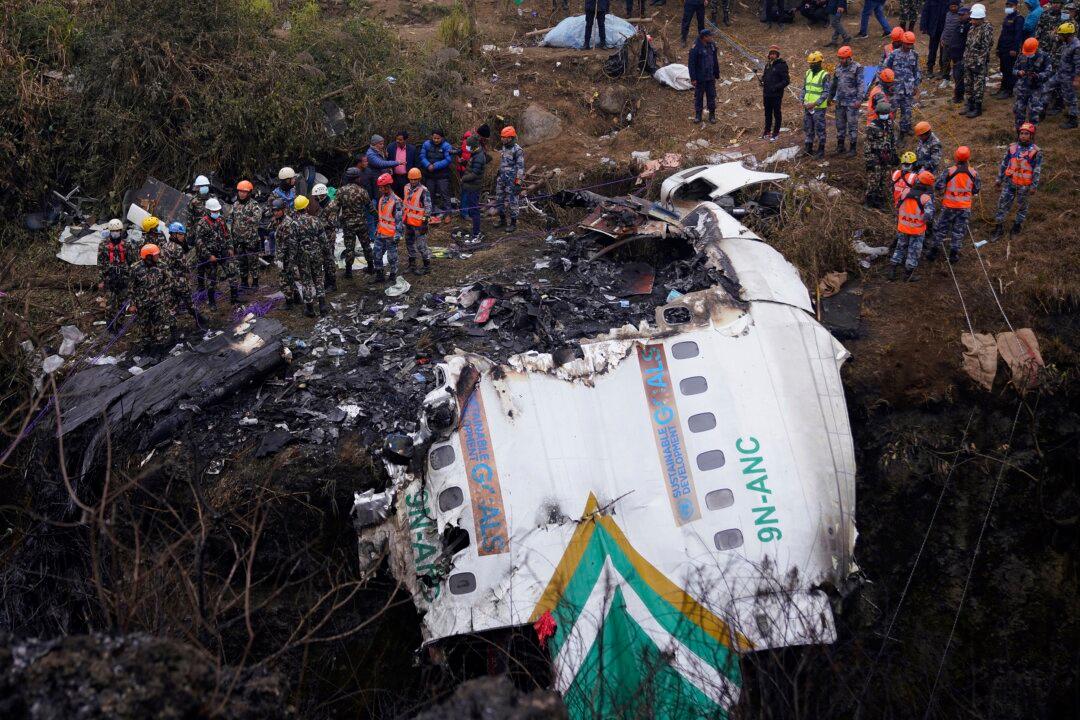NEW DELHI—Airplane passenger Sonu Jaiswal’s 90-second smartphone video began with the aircraft approaching the runway by flying over buildings and green fields over Pokhara, a Nepalese city in the foothills of the Himalayas.
Everything looked normal as Jaiswal’s livestream on Facebook shifted from the picturesque views seen from the plane’s window to fellow passengers who were laughing. Finally, Jaiswal, wearing a yellow sweater, turned the camera to himself and smiled.





